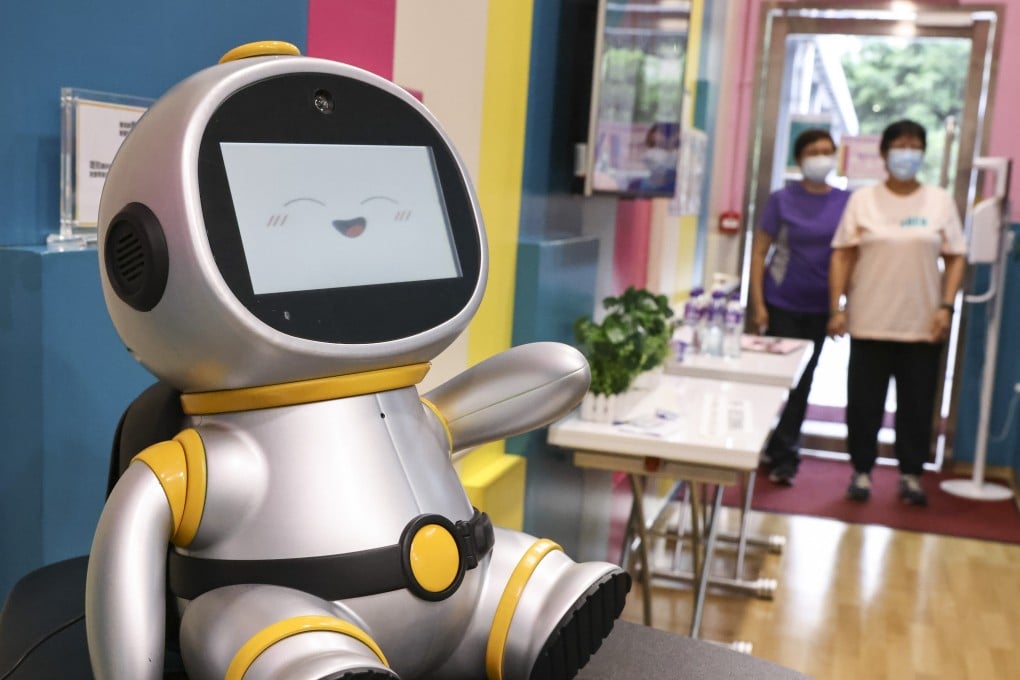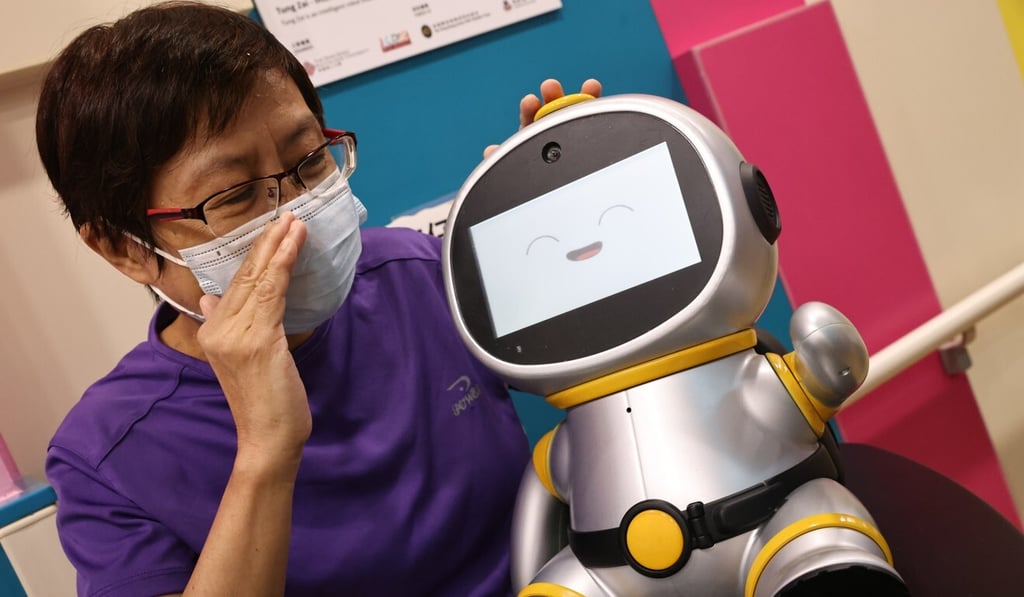Advertisement
Hong Kong elderly centre gets a robot receptionist who answers questions, gives health tips and compliments visitors too
- Design centre team’s friendly talking robot makes for fun, livelier interactions with elderly
- City’s rapidly ageing population demands fresh ideas to improve elderly centres, experts say
Reading Time:3 minutes
Why you can trust SCMP

Visitors to a retirees’ social club in a Kwun Tong public housing estate are greeted by Tung Zai, the voice-activated robot receptionist.
They can ask a question in Cantonese about the day’s activities at the centre by pressing a button on its head.
Press a button on its stomach, and Tung Zai will make a random comment, offering healthy lifestyle tips, perhaps, or deliver a compliment such as: “You are very pretty!”
Advertisement
It can also tell jokes and quote Chinese poetry.

Advertisement
“I’ve never seen anything like this before, I like it so much,” said Chu Sau-lin, 66, a regular visitor to the Fong Shiu Yee Neighbourhood Elderly Centre in Sau Mau Ping Estate. “I wish I could buy one to play with myself.”
Advertisement
Select Voice
Select Speed
1.00x